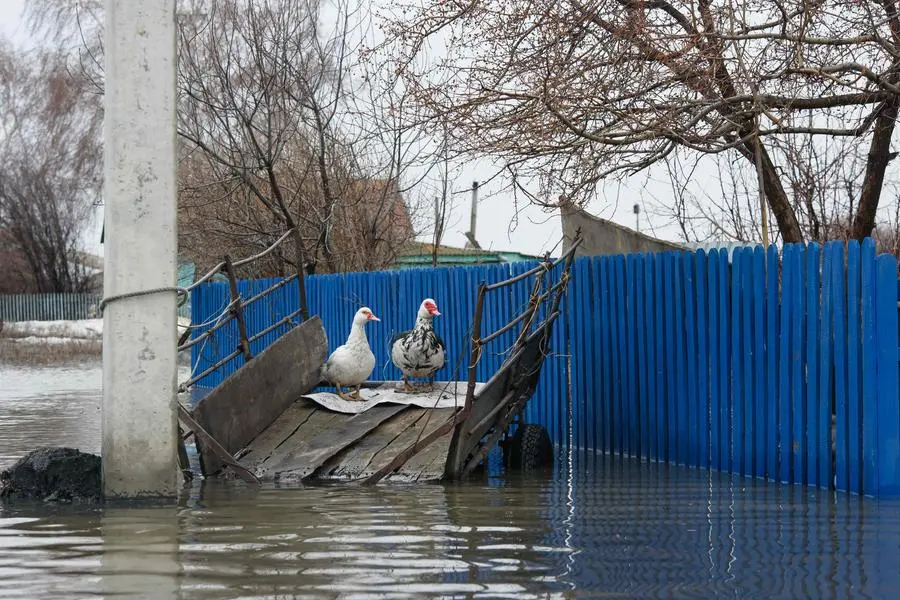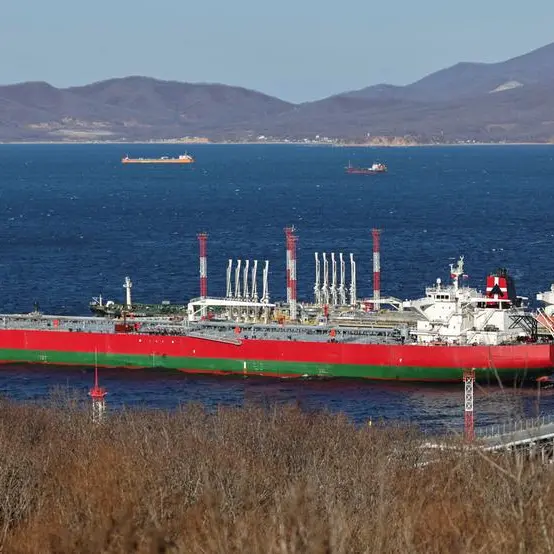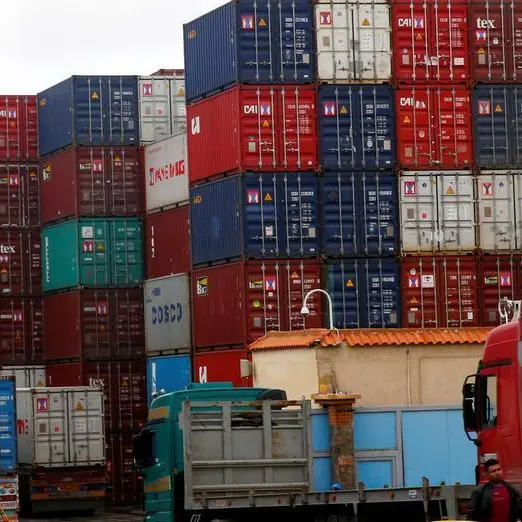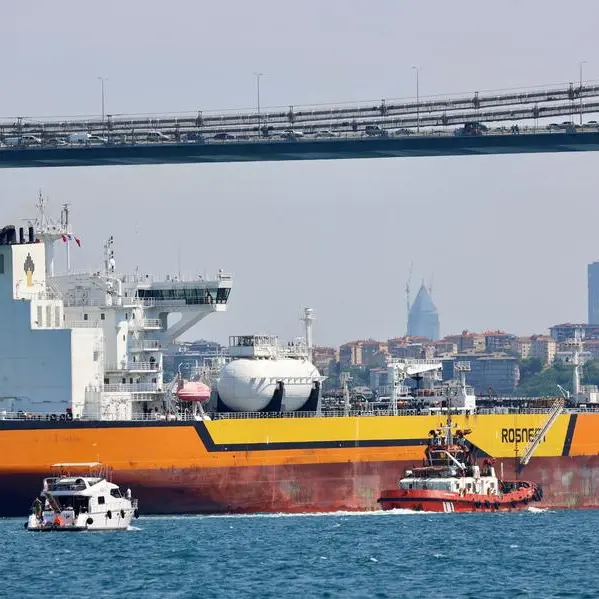PHOTO
Russia warned Monday that icy waters would likely rise in flood-hit central regions of the country, as authorities announced new evacuations and rushed to contain damage caused by the deluge.
Western Sibera and the Urals regions, as well as Russia's neighbour Kazakhstan, have suffered devastating floods that have forced thousands to flee inundated towns and villages.
The Kremlin said that water levels had retreated in some areas -- like the worst-hit Orenburg region -- but that the Kurgan and Tyumen regions were now threatened by rising waters.
Kremlin spokesman described the floods as "treacherous" and "dangerous".
He said flooding in Siberian regions will peak "in the middle of this week."
"All services have been fully mobilised and are taking all necessary measures," Peskov told reporters.
Tyumen authorities said they had evacuated eight villages due to the rising Tobol river and warned the Ishim river was also rising fast.
"The situation is tense. The water on the Ishim river is rising very dynamically," Tyumen governor Alexander Moor told Russian state television.
He said the river is expected to reach "historic maximum" levels and that authorities were mulling forced evacuations.
The Ishim, which flows through Russia and Kazakhstan, had started to overflow in places as its thick ice cover melts, authorities said.
In a video late Sunday, Moor warned the river will "flow intensely" as the ice melts, threatening the city of Ishim that has a population of some 65,000.
Russia's emergency minister Alexander Kurenkov, meanwhile, visited the city of Orsk in the Orenburg region that was almost entirely flooded by the Ural river last week.
Kurenkov is to meet with evacuees after rare protests erupted in the city over how authorities managed the crisis and the compensation.
His ministry said Kurenkov "will oversee the implementation of previously announced instructions", including on assistance.
The emergency situations ministry said that 3,725 residential buildings were still flooded in Orsk and that over 2,500 people have been evacuated, with over 600 in temporary housing.





















